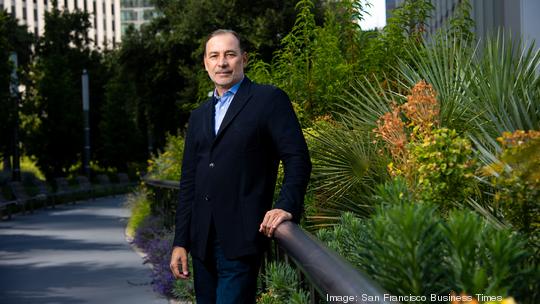
Painful decisions are coming for business leaders due to a public market downturn and narrowing exit options for startups, but eventually the best businesses will emerge from the current market stronger. That seemed to be the consensus from a panel discussion hosted on Thursday by Forge Global, a private securities marketplace based in San Francisco.
Forge Global CEO Kelly Rodriques moderated a panel featuring Motive Partners founding partner Blythe Masters, The Private Shares Fund chief investment officer Christian Munafo and EQUIAM founder Ziad Makkawi.
"We don't think the sky is falling. We don't think the world is ending," Munafo said. "It's clearly a challenging time. I think some are gonna experience more pain than others."
While the best companies might start focusing on reducing burn rates, thus impacting their growth, the slowdown will be relative and they will be fine in the long run.
"As a long term investor, we want to see exits in three to four years, but if it takes longer, let it take longer. We don't want companies to force liquidity," Munafo said. "The weaker companies are the ones that are either going to simply raise down rounds, get acquired or go away. And that may sound harsh, but it's healthy for any ecosystem."
Luck is always part of the equation, Masters said, but fiscal discipline is crucial for all companies and those that are already prepared for some belt-tightening will fare better. And any company that is seeing its window closing for a public market debut may start looking for alternative sources of liquidity, particularly for employees who have equity stakes.
Just this week, San Francisco fintech Brex announced a $250 million employee tender offer that was led by Y Combinator and valued the company at $12.3 billion.
"This tender offer was intended primarily for our employees to recognize their hard work over these past five years and the support they’ve given to Brex," CEO Henrique Dubugras wrote in a blog post on Tuesday.
The five-year-old company has raised $1.21 billion, according to PitchBook.
Another alternative exit is merging with a special purpose acquisition company, or SPAC, although excitement for this route has cooled since last year's frenzy and the SEC's anticipated crackdown to tighten up the rules.
For some companies, a SPAC merger might still be a good option but companies should do their own due diligence on potential sponsors.
“A year ago, as you well know, or more, it was all about price and only about price. And at the end of the day, many of those combinations that were won on the basis of who was willing to bid the highest price at all costs… those are the deals that are breaking today," Masters said, and “I think this is sorting out the sheep from the goats, both in terms of the companies and in terms of the sponsors. And the SPAC structure, which has been here for a lot longer than most people realize, will stay for a lot longer than most people are currently predicting.”
Private companies might start taking even longer than 10 years to make a public debut, and valuations will get reset, sometimes deservedly and perhaps sometimes not.
But there will also be pressure on fund managers to be more strategic.
In March, Instacart voluntarily slashed its own valuation by around 40% to $24 billion.
"Are there more Instacarts? Certainly there are," Makkawi said. "You have to be able to find out what's what. So, room for error for fund managers is going to be substantially decreased. And the ability of fund managers to pick the winners and avoid the landmines is going to become increasingly important."







